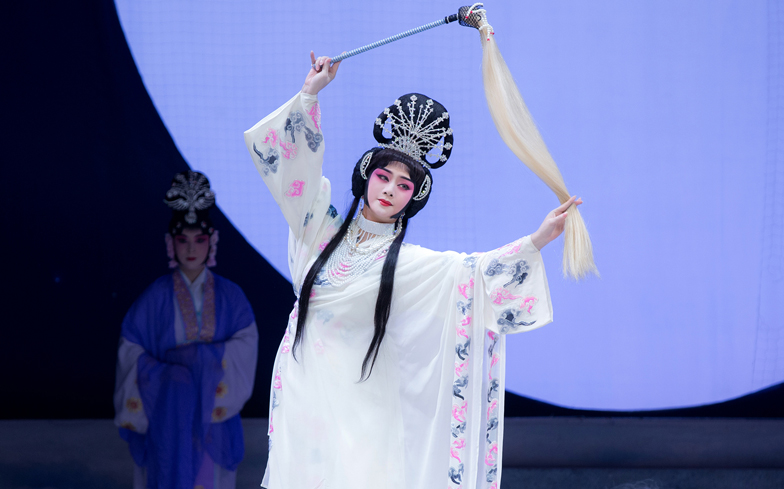
On a rare visit to the UK, the China National Peking Opera Company have taken over Angel’s Sadler’s Wells theatre for a brief residency.
For those unfamiliar, Peking Opera is a traditional performing art form, which has developed over the last 200 years and encompasses the culture, values and traditions of the Chinese people. Over the weekend we were invited to attend two performances by the China National Peking Opera Company; one quite a conventional two-act play with a through-narrative, the other a pair of short stories with more focus on dance and movement than the music itself.
The first show, The Emperor and the Concubine, was the more straightforward piece. Clocking in at over two hours it felt quite weighty, although we appreciate in the world of opera that’s not a particularly long time. This told the story of an emperor who selected his favourite concubine to come and live with him in his palace; he subsequently ennobled her and all her family. This proved an unwise decision, with her relatives having designs on power and attempting to overthrow the dynasty.
While undoubtedly this was performed to a very high standard, and there was much to admire – such as the beautiful set designs and intricate costumes – we just found so much of it inaccessible. Peking Opera is frankly unrecognisable in comparison to any western art forms. Much of it we found completely baffling – the ear-piercingly loud high notes, the hugely repetitive percussion, exploration of tonalities we’re just not used to, the disconcertingly sinister way the performers seldom showed any expression on their faces or moved their lips, a story arc that stretched way beyond suspending our disbelief. English subtitles could only help the situation so far.
Related: Ralph Fiennes shines in Antony and Cleopatra at the National Theatre – review
The second show, The Monkey King & The Crossroad Inn, was quite different. This comprised two short stories – one per act – and was a shorter production, so was a bit more palatable. We really struggled with the music in this one, however – the focus was much more on dissonant percussion, which only seemed to have two dynamics; offensively loud or, alarmingly, even louder. We questioned whether it would really be recognisable as an opera, with the focus more on the narration and extended movement sequences – there was precious little singing involved.
In this performance, the movement sequences impressed – the fights were more akin to a synchronised gymnastics routine, and all the better for it. There was also a surprisingly humorous scene built on the pretence of two characters attempting to find and fight each other in a dark hotel room, although it overstayed its welcome by several minutes.
These performances both shared the same fundamental problem, however, in that they were both just so frustratingly difficult to access. This is a shame as it’s evident that they’re performed to a very high technical standard and everything on stage looked very nice indeed. However, we couldn’t recommend these Peking Opera performances to those without an interest in Chinese high art – everyone else should probably give it a miss.
Gay Times gives the China National Peking Opera – ★★★☆☆
More information can be found here.



